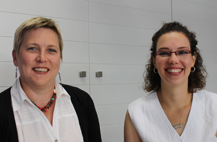Latest News Archive
Please select Category, Year, and then Month to display items
29 March 2021
|
Story Lacea Loader
![]()
1. Its support of and confidence in the leadership of the Rector and Vice-Chancellor of the UFS, Prof Francis Petersen and his team, and duly recognises the efforts and results achieved at the University during the challenges posed by the COVID-19 pandemic, as well as the current nationwide student protest on the payment of student debt.
2. In this context, the Council also distances itself and deplores the statements made by the leadership of the
Institutional Student Representative Council (ISRC), on national television on Monday 15 March 2021, as it pertained to the demand for the immediate resignation of the Rector and Vice-Chancellor, and the statements pertaining to the Chancellor, Prof Bonang Mohale, and Chairperson of the Council, Dr Willem Louw. The Council notes that Mr Katleho Lechoo, President of the ISRC subsequently retracted the utterances.
3. The Council strongly affirms its confidence in the relationship between the leadership of the UFS and the ISRC and expresses its appreciation for the University leadership’s commitment to continuously engage with students about matters of concern to them. The Council furthermore encourages positive and constructive engagement by the ISRC with the University leadership, as this contributes to shared-understanding of the challenges faced by the South African higher education sector and the governance of the UFS.
Two Kovsie women involved in international sports events
2012-05-14
 |
|
Hetsie Veitch and Ebeth Grobbelaar
Photo: René-Jean van der Berg
14 May 2012
|
The organisers of two international sports events will depend on the expertise of two Kovsie women to make the events a major success.
The honour to be involved in international sports event has befallen Ms Hetsie Veitch and Ms Ebeth Grobbelaar.
The honour is the result of many years’ hard work and devotion in their respective fields.
In June, when the USA chooses the team to represent it at the 2012 Paralympic Games in London, Ms Veitch will be one of the classifiers who will determine in which categories athletes may compete.
Ms Veitch, Head of the Unit for Students with Disabilities at the University of the Free State (UFS), has been invited to be a member of the Classification Panel at the final USA Paralympic athletics trials. The trials take place from 27 June to 1 July 2012 in Indianapolis, Indiana, in the USA.
Ms Veitch and four other classifiers, two from Brazil, one from Canada and one from the USA, will test and verify the international classification status of the American athletes. No athlete will be allowed to take part without their classification being verified by the panel.
Ms Veitch, who recently achieved the status of International Paralympic Committee (IPC) Athletics Classifier, the highest achievement for a classifier in sport for the disabled, said that this category of sport has always been her passion.
“To have the opportunity to be involved in the classification of the USA team for the London 2012 Paralympic Games is a huge honour. I am going to start working on being chosen for the official IPC classification panel for the 2016 Paralympic Games in Brazil.”
Ms Grobbelaar, Assistant Director of the South African Testing Laboratory for Prohibited Substances at the UFS, was invited to be involved in the Drugs Control Centre in the unit against prohibited substances which will test sportsmen and women during this year’s Olympic Games in London.
Ms Grobbelaar said that even though the future of sportsmen and women would be in her hands, she is totally capable of carrying out the task that awaits her.
“I will be part of the laboratory team who will test the athletes’ samples for prohibited substances. I was part of the South African team who tested samples in our own laboratory in 2010 during the FIFA Soccer World Cup, as well as for the All Africa Games. The task is one I perform every day in our own laboratories. Each sample that I analyse determines an athlete’s future. The circumstances during the Olympic Games are different, but the work remains the same.”